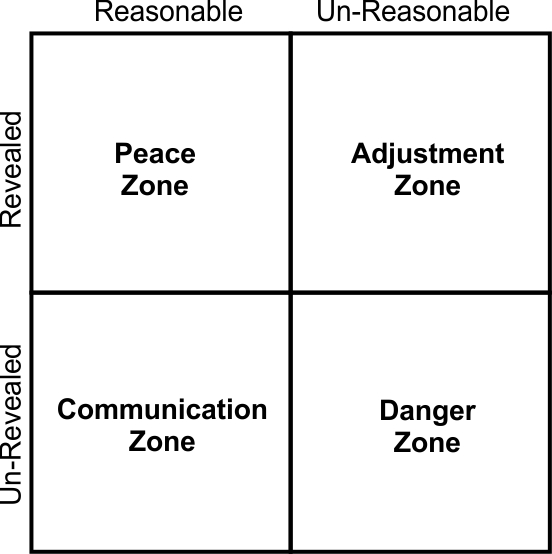This past weekend at church, I talked about something God taught me years ago: anger is the result of an experience that doesn’t meet our expectation. I’ve yet to find a circumstance where this wasn’t true. My anger is ALWAYS the result of an experience that didn’t meet my expectation.
Understanding this principle is very helpful to leaders because, let’s face it, anger is never helpful. The Bible makes that pretty clear. For example: The anger of man does not produce the righteousness of God – James 1:20). That’s pretty direct, but in dozens of other places, the Bible commands people to get rid of anger. It’s not necessarily that anger is always wrong – after all, God gets angry, so apparently it’s possible (for God at least) to be both angry and perfectly righteous – but let’s be real: when was the last time you got angry and did things more righteously?
So…if anger is the result of unmet expectations and anger isn’t helpful…what do we do? Well, that’s a big question, but at least part of the answer is that we do a little thing called expectation evaluation. I’m finding that I can get rid of a lot of anger simply by evaluating my expectations. Because a lot of times, my unmet expectation wasn’t reasonable. And once I realize this, my anger subsides.
As I’ve wrestled with this, I’ve realized that all expectations can be evaluated with two simple questions:
- Is this expectation reasonable?
- Is this expectation revealed?
The second question is important because we really don’t have a right to get angry when even a reasonable expectation goes unmet…if the other person has no idea that the expectation exists!
Here’s what I call the Four Zones of Our Expectations:

- If an expectation is unreasonable and unrevealed, that’s the Danger Zone.
- If an expectation is unreasonable but revealed, that’s the Adjustment Zone. Because if you have an expectation and you reveal it and in that conversation come to realize it was an unreasonable expectation, it’s your responsibility to adjust it. That takes some humility, but what’s the alternative?
- If an expectation is reasonable and unrevealed, that’s the Communication Zone…which also requires some humility. Because for some reason, it takes more humility than you’d expect to share an expectation you have…maybe because it means we have to give up an excuse to stay angry? But also, we have to know that sharing what seems like a reasonable expectation may lead to a conversation where we discover it wasn’t as reasonable as we assumed.
- If an expectation is both reasonable and revealed, that’s the Peace Zone. Most people will try to meet reasonable expectations they know about. And when they don’t, most people will apologize, which leads to…well, peace.
Give it a try! Here’s how it works. Ask yourself:
- What’s something I’m angry about?
- What unmet expectation is driving that anger?
- Which of the Four Zones are we in?
- What do I need to do to move into a better zone?





